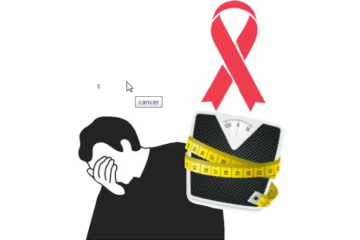Cocoa Shells Extract may Help Control Obesity

Islamabad, (25 June, 2019): Obesity alters cells and leads to long-term health problems.
According to a new research carried out by the University of Illinois at Urbana, cell change [which can be inflammation and damage to metabolic functions, usage of insulin and production of energy] connected to obesity can be prevented by the compounds present in cocoa bean extract, green tea and even coffee. The compounds are mainly attributed as:
- protocatechuic acid
- epicatechin
- procyanidin B2
They are considered to be plant phenolics. Since last few years, scientists have made a conscious shift to study plant phenolics for the health properties they may possess. ‘White adipocytes’ which is a type of fat cells, acquires too much fat and stints growth of immune cells known as ‘macrophages’, in obesity.
The interaction between adipocytes and macrophages, based on scientific research, promotes a state of chronic inflammation that then accompanies obesity. Which then leads to an ability of the cells to take in and convert glucose into energy. The impairment or deficit therefore, leads to insulin resistance which becomes a precursor to type 2 diabetes.
Moreover, rising levels of glucose, inflammation and too much fat can also damage the mitochondria which is considered to be a tiny powerhouse within the body, the purpose of which is to burn fat and glucose.
Upon studying the various obesity relate effects, researchers have found that the treatment lies simply in cocoa shell extract.
According to lead study author, Rebollo-Hernanz, Ph.D., “we observed that the extract was able to maintain the mitochondria and their function, modulating the inflammatory process and maintaining the adipocytes’ sensitivity to insulin.”
According to data provided by the World Health Organization (WHO), there were nearly more than 650 million obese people in 2016. These statistics were not area specific rather global. Based on WHO estimates, 2.8 million death occur due to obesity which have nearly tripled in 40 years between 1976 to 2016.
It is believed that people who suffer from obesity have a higher chance of falling prey to long-term diseases that generally include type 2 diabetes, cancer and other conditions of the heart conditions as well as problems with blood vessels.
Previous studies have shown that with growing obesity there is the trouble with fat accumulation as well as an increase in adipose tissue macrophages that in turn give rise to “chronic inflammation” and “dysregulated metabolism”.
Rebollo-Hernanz and team by means of the new study are interested in finding out whether targeting the interaction between adipocytes and macrophages with cocoa shell extract will prevent mitochondrial damage and insulin resistance. After running several tests as well as using computer models and bioinformatics to analyze the molecular impact, in one set of experiments, the researchers got white adipocytes to grow in a culture containing macrophages.
Lead study author who is also a visiting scholar in the department, Rebollo-Hernanz says that the white adipocytes cultivated in this manner had fewer mitochondria which too were impaired. He and his colleagues further inferred that treating the cells with cocoa shell extract or the the three phenolics not only repaired the damaged mitochondria but also reduced fat accumulation.
They also discovered that adding the compounds to the culture caused white adipocytes to change their color and become ‘beige adipocytes’.
These new type of adipocytes differ from the previous ones in the sense that they have more mitochondria and are much more efficient in fat burning. While the experiments have so far been conducted on rats, the scientists are hopeful should the findings hold true for human cells, that there will be potential in using cocoa shell extract as an additive to boost the nutritional value of food and drinks.
In additions, the researchers are also of the opinion that the potential advantages of using cocoa shell extract may also enhance their nutrition.
While it is typically wasted by the food and cocoa industry, the researchers fear that the cocoa bean shells can damage the environment if producers who who discard approximately 700,000 tons of shells each year do not dispose of them responsibly, according to Prof. Elvira Gonzalez de Mejia [co-author].
“Assuming that these phenolics were the main actors in this extract, we can say that consuming them could prevent mitochondrial dysfunction in adipose tissue.”
Stay tuned to Baaghi TV for more updates.









